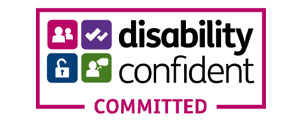So you messed up. So what?
This is an unprecedented moment in time, where the old rules no longer apply. So what does this mean for the future of leadership in the social sector?
In the age of bluster, having the courage to own your mistakes can be a positive strength, say Matt Hunt, Juliet Taylor and Matt Stevenson-Dodd.
We got cocky, we thought anything we did would work’. Last month on Channel 4, celebrity chef Jamie Oliver was filmed breaking down in tears about how his restaurant business had failed, and admitting the mistakes he’d made. For someone so clearly committed to driving social change, and remaining in the media spotlight, wouldn’t this confession be damaging? Not according to psychologist Guy Winch in his 2018 article in Psychology Today1: ‘Some people have such a fragile ego, such brittle self-esteem, such a weak “psychological constitution”, that admitting they made a mistake or that they were wrong is fundamentally too threatening for their egos to tolerate.’ By contrast, ‘It takes a certain amount of emotional strength and courage to deal with that reality and own up to our mistakes.’
In an age dominated by blustering ‘strong man’ politics both sides of the pond, a frank admission of fallibility could be decidedly refreshing. And those who ‘fess up to failure are in distinguished company.
Many of our most iconic success stories exemplify how we can ‘fail forwards toward success’, to quote CS Lewis. Just look at Steve Jobs (fired by Apple), Michael Jordan (cut from his high school basketball team) or James Dyson (5,126 failed prototypes and all of his savings spent before inventing the bag- less vacuum cleaner).
At a corporate level, Silicon Valley tech businesses have long espoused the ‘fail fast’ model of prototyping ideas, testing lots of quickly developed ideas in the live market to see what actually works – as opposed to believing what people might do, so often the currency of market research. Testing first to see what fails, culling it and then rapidly promoting what works seems like common sense – but this approach is only just gaining traction in advertising and communications, which have long favoured a subjective and inflexible reliance on one ‘big idea.’
In the world of social change, where the problems faced by society are extremely complex, and traditional solutions are not reaching those in the most complex circumstances, we need to be brave enough to take risks and try new ideas, work in partnership and share transparently what we learn. Taking risks means we won’t always get things right and that is ok. The learning that comes from failure is often much more valuable for working out new solutions than success. And if those trying to effect social change are open about their failures, it makes the successes they are reporting that much more plausible.
This holds true when it comes to attracting financial support. If you can show what you’ve tried to do but failed, and so indicate where the need is – and where the solution is bigger than one person or one organisation – it can help drive home the case for support. Often the fact that something has failed makes the next iteration of the solution that bit more likely to succeed.
It takes nerves to swim against the tide. But the evidence suggests that far from being seen as a human weakness or a commercial threat, a readiness to admit to failure may yet prove to be your biggest strength.
Humility and authenticity are in fact great leadership qualities. Why then, for many leaders, does a nervousness to share what they have learned from their mistakes remain? As Ellen DeGeneres wisely said, ‘It’s failure that gives you the proper perspective on success’.
We are three organisations who each want our work to contribute to a better society. We share a common belief that social change is everyone’s responsibility and bring different perspectives and expertise to the table.
Our collaboration is based on a belief in co-production and that, together, we will always achieve more.

Expert Interim Talent: How to Launch Your Portfolio Career
Today's business landscape demands agility and specialised expertise. Discover how to leverage your skills across diverse, high-impact projects, gaining unprecedented flexibility and autonomy. Forget "holding the fort", modern interims are strategic leaders, driving change and delivering results in times of transformation.
Recruiting leaders in perilous times
Leadership appointments have always carried weight, but in the current climate they carry a different kind of exposure. For those of us working at the interface between Boards and candidates, it is clear that the rules of engagement have shifted, and that executive search must shift with them.
In praise of Gen Z
I surveyed my multi-generational team on what they wanted from work. Here's what I learned.
ACCREDITATIONS


ESPO is a public sector owned professional buying organisation (PBO), specialising in providing a wide range of goods and services to the public sector for over 40 years. Starfish Search has been awarded a place on ESPO’s Strategic HR Services framework (3S). Services we offer under the framework include: Lot 1, Executive and Managerial Interim Recruitment Lot 2, Executive and Managerial Permanent Recruitment.


Starfish are proud to be certified Disability Confident Committed. This scheme provides employers with the knowledge, skills and confidence needed to attract, recruit, retain and develop disabled people in the workplace.


Crown Commercial Service supports the public sector to achieve maximum commercial value when procuring common goods and services. In 2020/21, CCS helped the public sector to achieve commercial benefits equal to £2.04bn - supporting world-class public services that offer best value for taxpayers. Starfish Search has been named as a supplier on Crown Commercial Service’s Executive and Non-Executive recruitment. Services we offer under the framework include: Lot 3 - Non-Executive and Public Appointments.


Bloom, launched in 2012 is the UK’s leading marketplace for professional services. They provide an end-to-end solution for the procurement, contract management and payment of all professional services, via the compliant NEPRO³ framework. Their public sector clients have access to 20 professional services categories and over 4500 accredited suppliers. Bloom provides swift routes to market via either direct award or mini competition. Starfish is an accredited supplier to BLOOM; our services can be accessed via this framework - Executive and Non-Executive Search and Interim Management.
Join the starfish team
We hire people who bring insight, integrity and ambition to their work. If you’re ready to contribute to shaping the future of leadership and you want to explore our current opportunities please click the link below.
find out more